Vietnam charts strategic course with four key resolutions for long-term growth
Party Chief To Lam outlined four key Politburo resolutions as pillars for Vietnam’s long-term growth, focusing on legal reform, private sector development, innovation, and global integration toward a high-income future by 2045.
THE HANOI TIMES — General Secretary To Lam on May 18 delivered a sweeping and strategic overview of four landmark Politburo resolutions, positioning them as the backbone of Vietnam’s development agenda in a rapidly evolving global landscape.
Framing the resolutions as mutually reinforcing pillars, the Party leader said these resolutions played a central role in guiding the nation through a new era defined by technological innovation and economic transformation.
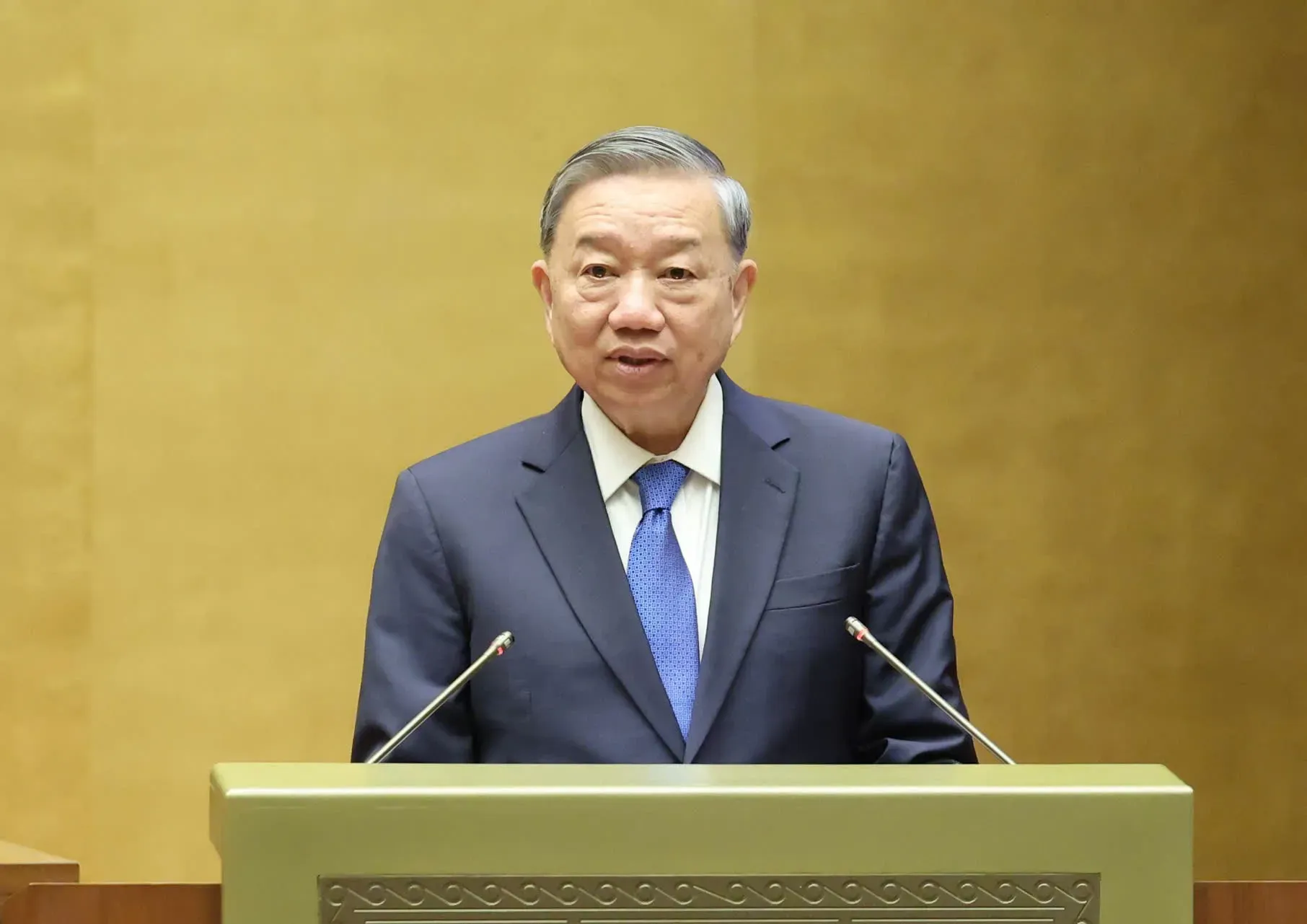
General Secretary To Lam. Photos: National Assembly
Lam was speaking at the national conference to realize the four major resolutions designed to accelerate the country’s development in the digital age. These include Resolution No. 66-NQ/TW, which calls for comprehensive reforms in lawmaking and legal enforcement; Resolution No. 68-NQ/TW, promoting the private sector as a key driver of the economy; Resolution 57-NQ/TW, emphasizing science and technology as a strategic breakthrough; and Resolution 59-NQ/TW, advocating proactive integration in the evolving global context.
In his keynote address, Lam reaffirmed the Party’s unwavering commitment to the goals set forth in both resolutions. He urged the entire political system, businesses, and citizens to kindle the spirit of renewal, aspiration and action, emphasizing that these reforms are vital to building a prosperous, strong, and resilient Vietnam.
“These are not just technical policy shifts; they represent a fundamental transformation in the way we think, govern, and grow,” he stated.
The conference marks a pivotal moment in Vietnam’s roadmap toward becoming a high-income, innovation-driven economy by 2045.
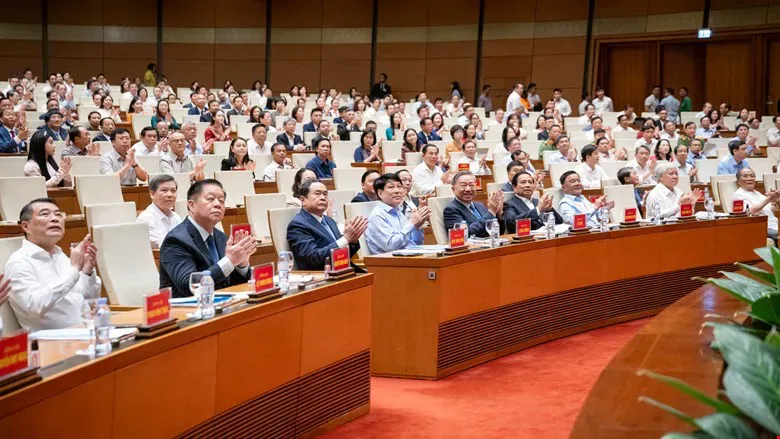
Delegates attending the conference at the Dien Hong Hall venue, National Assembly Building.
Resolution 68: A Turning Point for the Private Sector
Discussing Resolution No. 68-NQ/TW (May 4, 2025) on the development of the private economy, the General Secretary emphasized its significance as a breakthrough in the Party’s strategic thinking. For the first time, the private sector is officially recognized as “one of the most important driving forces” in a socialist-oriented market economy.
“This marks a historic shift,” he said. “We have moved from viewing private enterprises as a supplement to positioning them as a key pillar in leading the country’s development.”
Private sector development, he said, is not just an economic requirement, but a political imperative. It is central to enhancing economic self-reliance, competitiveness, and adaptability.
Resolution 68 calls for bold reforms including institutional improvements that protect property rights and business freedom; unlocking resources by expanding access to land, credit, and technology; promoting innovation and startups; and developing a new generation of entrepreneurs who are both economically capable and socially responsible.
Resolution 57: Science, Innovation, and Digital Transformation as Strategic Levers
Turning to Resolution No. 57-NQ/TW (December 22, 2024) on science, technology, innovation, and digital transformation, General Secretary To Lam noted that in the context of the Fourth Industrial Revolution, these fields are no longer merely supportive tools but must become foundational drivers of modernization.
The resolution calls for a national shift in mindset, removing outdated perceptions and fostering a culture of bold innovation. It outlines the need for institutional reform to create an environment conducive to scientific research and technological application.
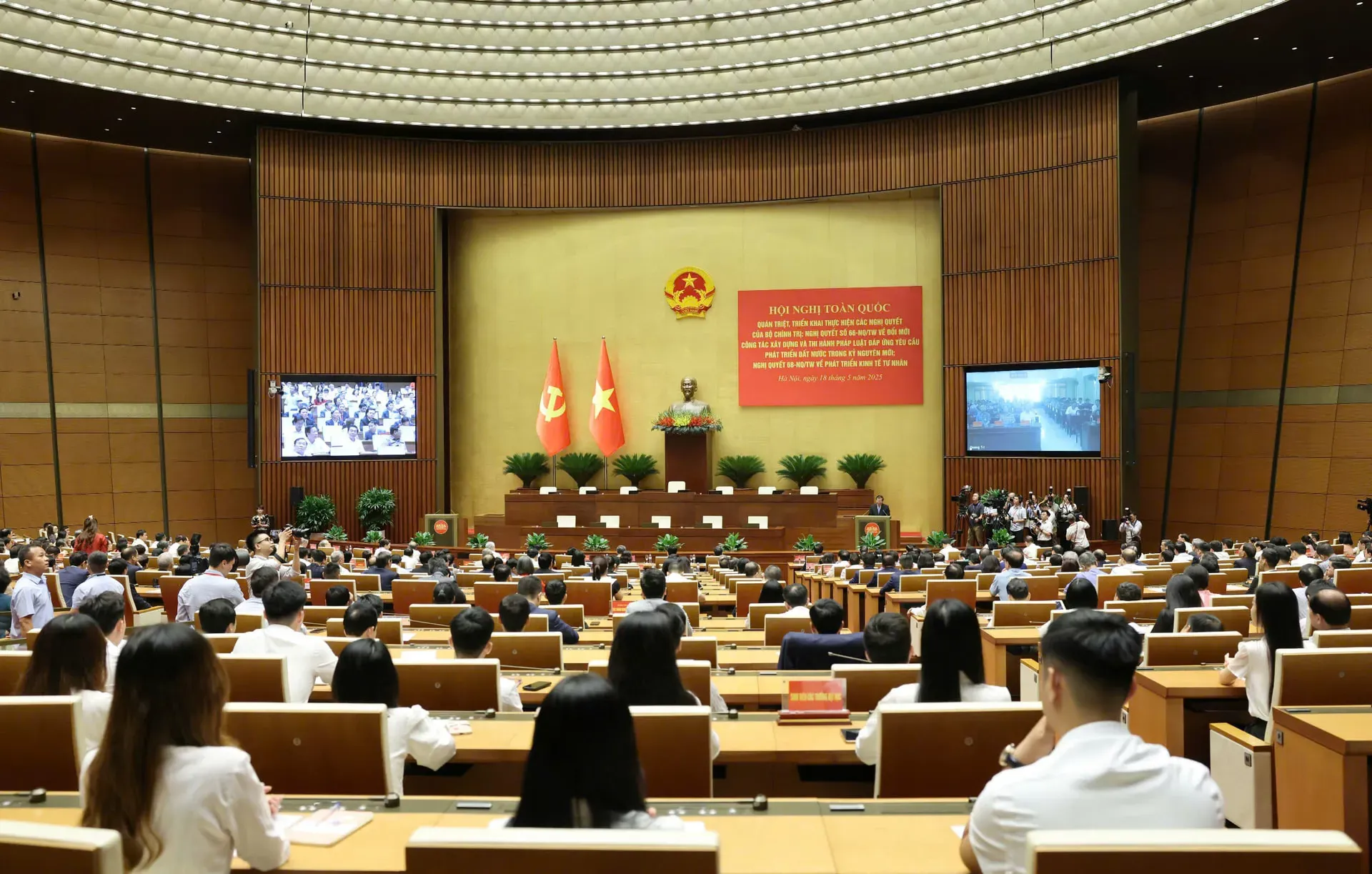
Resolution 66: Legal Reform to Serve Development
On Resolution No. 66-NQ/TW (April 30, 2025) on legal reform, the General Secretary said that the transformation of lawmaking and law enforcement is crucial for building a socialist rule-of-law state. Laws should not only regulate but also enable governance, protect rights, and drive socioeconomic progress.
Key directives include streamlining the legal process to be more proactive and creative, ensuring transparency, and strengthening law enforcement. A notable shift in thinking is evident: from passive “management” to active “service”, from fragmented reform to comprehensive institutional transformation.
Resolution 59: Proactive and Inclusive International Integration
Finally, Resolution No. 59-NQ/TW (January 24, 2025) focuses on international integration in a rapidly evolving global environment. It asserts that integration is a strategic driver for national advancement.
Vietnam's approach must be inclusive, people-centered, and business-driven, under the leadership of the Party. Economic integration must align with building an independent, self-reliant, green, and innovative economy. In politics, defense, and security, the focus is on building strong partnerships while safeguarding sovereignty and stability. In education, health, and environment, global cooperation must enhance national capabilities and human capital.
The resolution also calls for building a skilled international affairs workforce capable of navigating global challenges and seizing emerging opportunities.
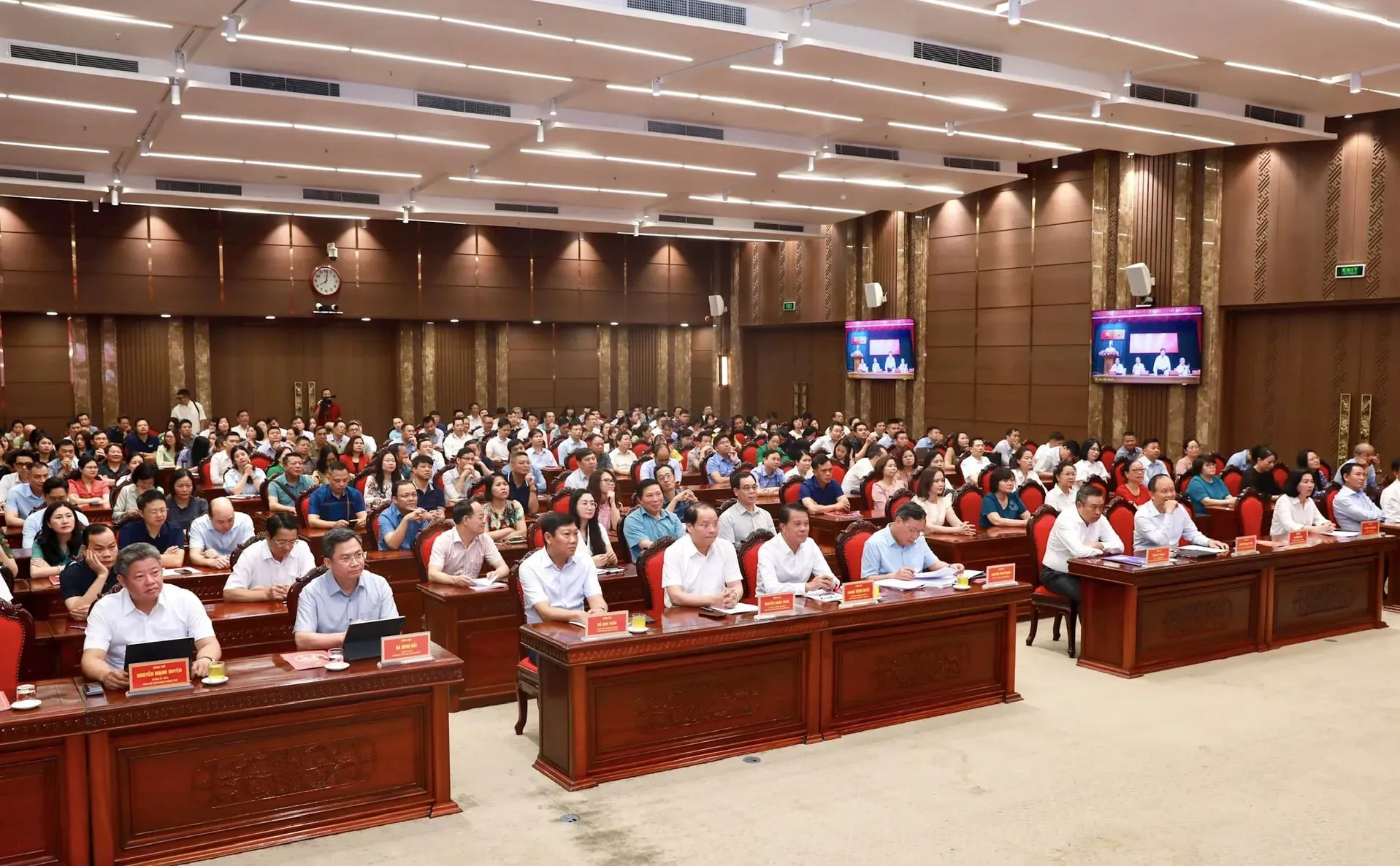
A unified vision for national development
General Secretary To Lam said that while each resolution targets a specific area, they form a unified strategic framework for Vietnam’s development. Together, they share a common goal: to build a strong foundation for Vietnam to become a high-income, developed nation by 2045.
“These resolutions are not isolated. Without a transparent legal system (Resolution 66), private businesses (Resolution 68) cannot thrive. Without innovation (Resolution 57), both private sector growth and international competitiveness (Resolution 59) would falter. Integration, in turn, pressures domestic institutions to reform and modernize,” said Lam.
Their common breakthrough lies in a new development mindset: from management to service, from protectionism to competitive innovation, from passive to proactive integration, and from piecemeal reform to comprehensive transformation. This marks a strategic evolution rooted in 40 years of reform and aligned with global trends in the digital age.
|
To bring these resolutions into reality, the General Secretary called on the entire political system to urgently carry out eight key tasks: Develop and implement national action programs for all four resolutions, with clear goals, timelines, and accountability mechanisms. Review and revise legal frameworks to align with Resolution 66, including reforms to property rights, business freedom, innovation policy, and international integration. A new Law on Private Sector Development is proposed. Launch national programs on science, technology, innovation, and digital transformation. New innovation hubs and legal sandboxes will be developed. Strengthen economic integration by advancing existing FTAs (CPTPP, EVFTA, RCEP, UKVFTA) and negotiating new agreements like DEPA and IPEF to convert commitments into tangible growth. Improve the business environment by cutting administrative procedures by 30%, digitizing public services, and supporting SMEs with capital, technology, and innovation resources. Establish dedicated coordination bodies at national and provincial levels to oversee and unify implementation, with strong oversight mechanisms. Invest in human capital, particularly young leaders with legal, technological, and international expertise, as well as entrepreneurial and digital competencies. Promote public awareness and consensus, including national media campaigns, public dialogue, and mobilization of intellectual resources to support implementation. |
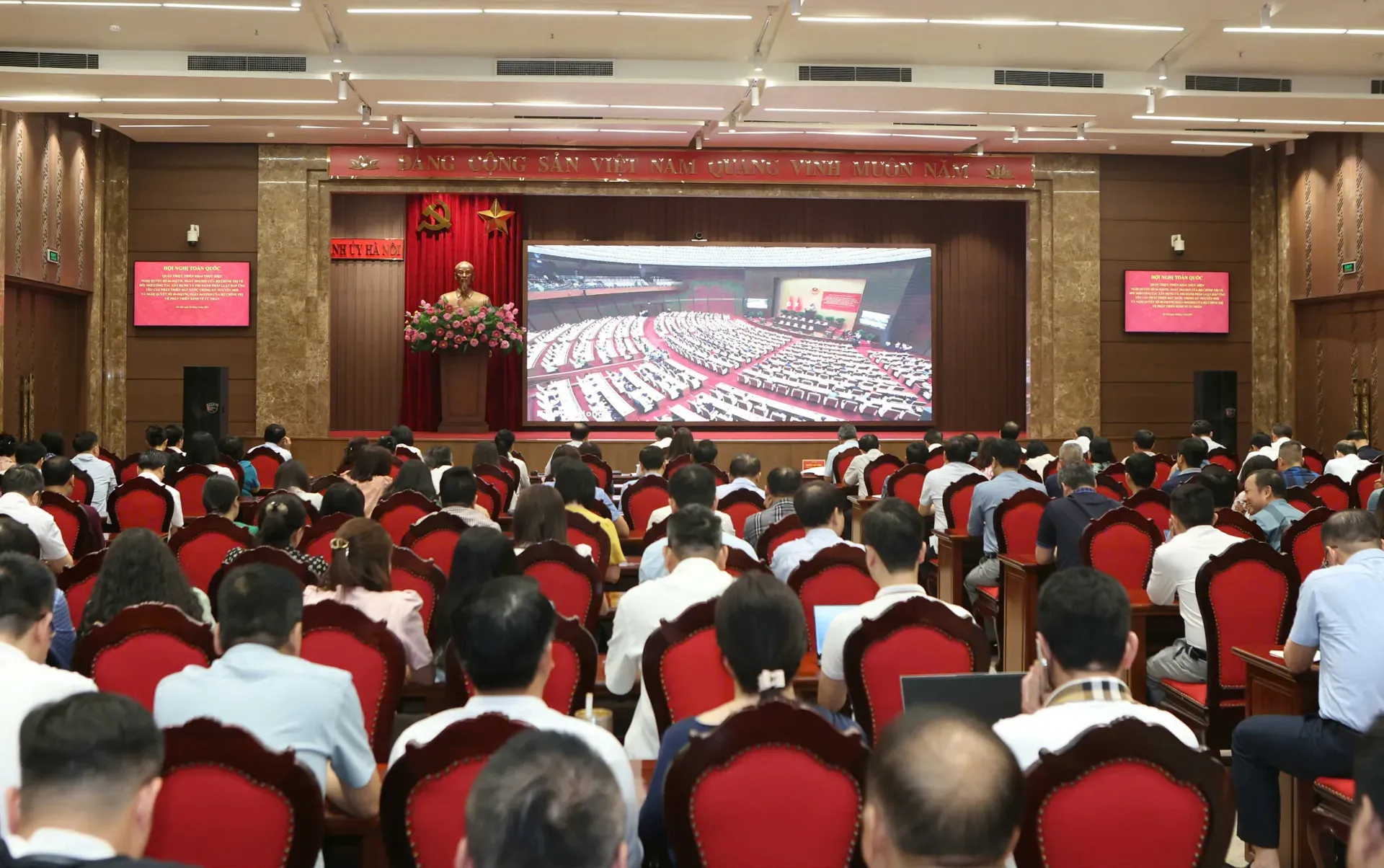
People at the center of development
General Secretary To Lam concluded with a powerful call to action: “To realize the aspiration of a prosperous, strong Vietnam, the Party, people, and army must unite with patriotism, self-reliance, and a fierce will to rise.”
He reaffirmed the Party’s commitment to developing future policies under the principle once expressed by President Ho Chi Minh: “All benefits for the people. All power belongs to the people.”
"The people and businesses must be recognized as the center and the creative force of development. Vietnam must foster a national startup spirit, unleash the power of innovation, and embrace the digital, knowledge-based, green, and circular economies. Only then can the nation move boldly and swiftly toward modernization and deeper global integration," he said.












